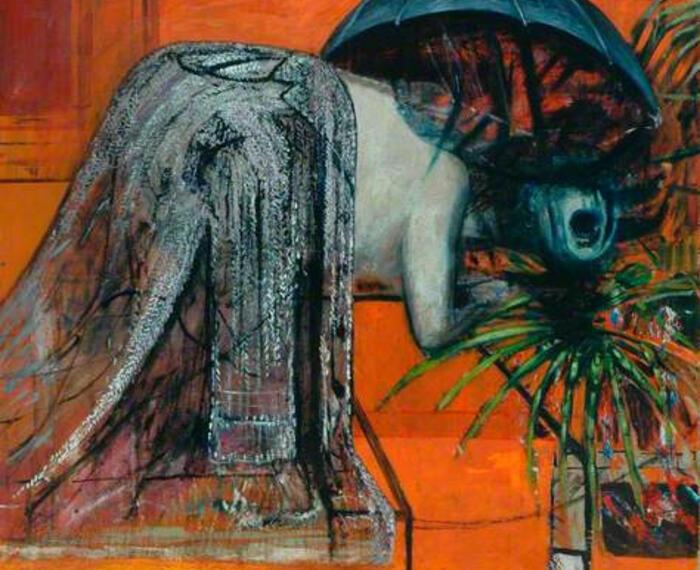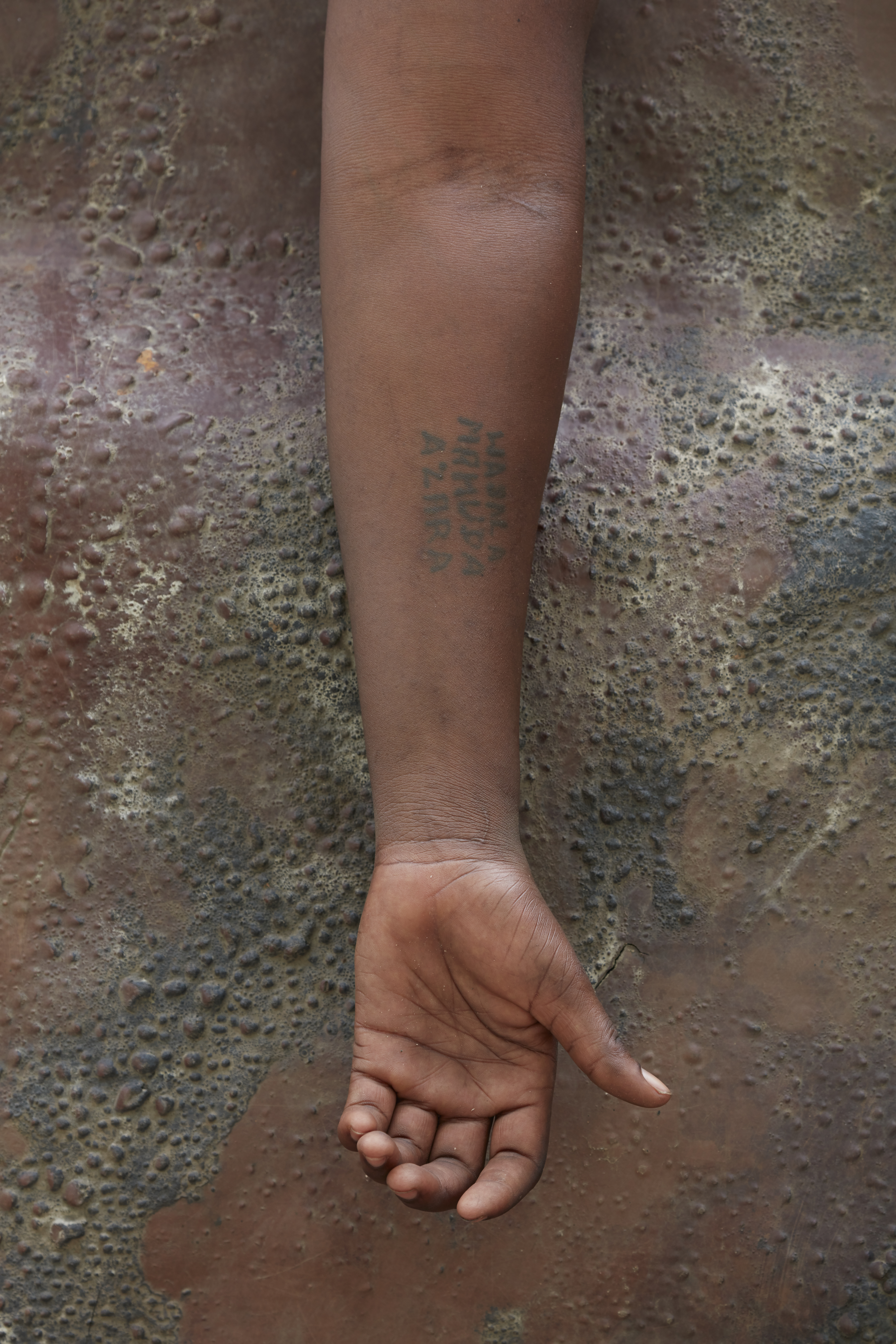A suite of eight photographic C-prints by Ibrahim Mahama acquired for the Norwich Castle Museum by the Contemporary Art Society through it Collections Fund at Frieze (2022) are the first acquisition of works by the Ghanaian artist for a UK institution. The prints depict the tattooed arms of long-term collaborators Mahama has worked with in Ghana. Some are placed over historic colonial maps of key locations in the country, others are photographed against decaying leather train seats, salvaged from the Gold Coast Railway. According to the artist, the works “look at the relationship between the body, tattoos and the maps created by the British” and “relate to the idea of the commodification of the body”. Rosy Gray, the curator of Modern and contemporary art at Norwich Castle, sees this acquisition as building on the museum’s existing collection and “providing insight into global narratives around land ownership and human migration”. Ibrahim Mahama explores themes of commodity, migration, and globalisation. His work is concerned with the movement of people and goods. The photographs depict the tattooed arms of long-term collaborators Mahama has worked with in Ghana. Some are overlaid on historic colonial maps of key locations, cities, and villages across the country. Others are photographed against decaying leather train seats, salvaged from the Gold Coast Railway. Tattooing family names or locations of birth on forearms is a common practice throughout rural Ghana, due to a lack of basic identification papers like birth certificates or driver licenses. This series of works by Ibrahim Mahama builds on Norwich Castle’s existing collection, providing insight into global narratives around land ownership and human migration. Contemporary collecting at Norwich Castle is often positioned within the context of the Norwich School, a collection of 19th landscape paintings alert to both the specificity of the local environment, and to broader concerns such as the enclosure of lands and social unrest. The acquisition of works by Mahama significantly expands these narratives, and with specific reference to British colonial rule in Ghana, platforms the impact of human activity on both historic and contemporary environments.


